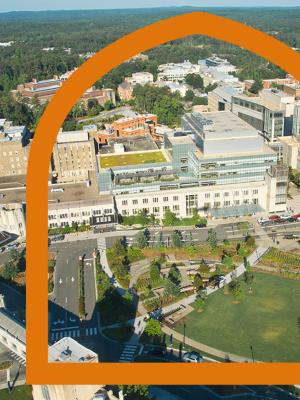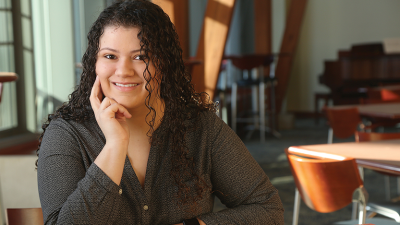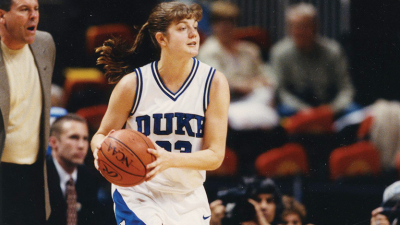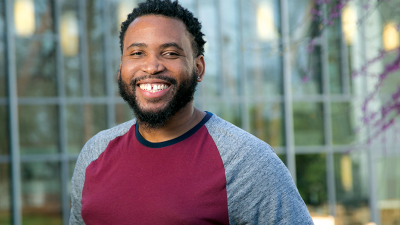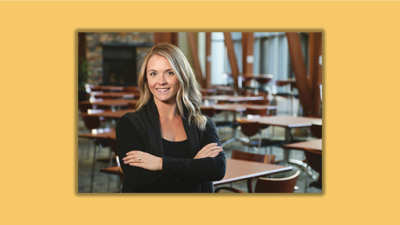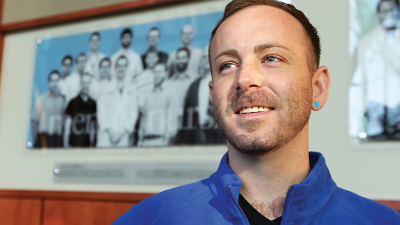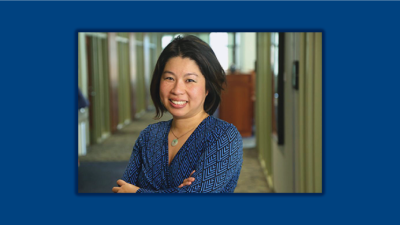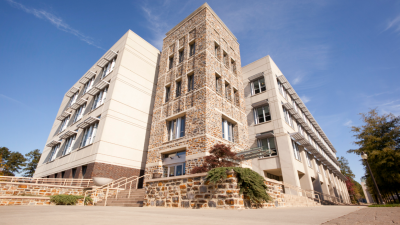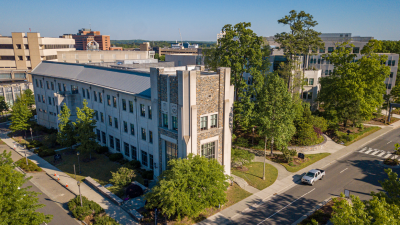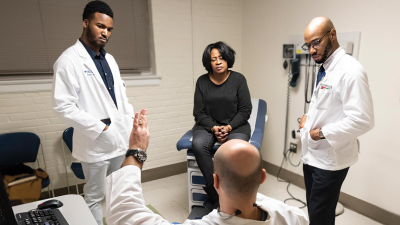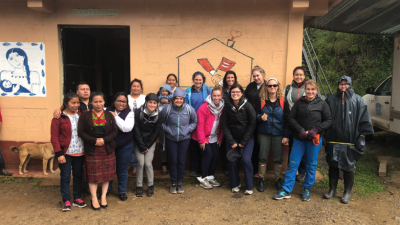
Meet Medical and Nursing Students
Fulfilling a Family Dream
Witnessing her mother battle cancer while going through a divorce was tough for Gabrielle Lasanta. A high school student at the time, she wasn’t sure if her newly single mother, burdened with the cost of cancer treatments, could afford to send her to college. But Lasanta’s mother wouldn’t hear of her forgoing a college education. They had come too far as a family.
Scoring Points for Health
Georgia Beasley was a student-athlete at Duke when she met Sara, an 11-year-old girl, who was sitting on the bleachers at Cameron Indoor Stadium. The young girl was waiting for her father, who was late to pick her up from a Duke basketball summer camp. Beasley asked her to catch rebounds for her, and Sara happily agreed. Later, her father introduced himself as none other than Henry Friedman, MD, deputy director of the Preston Robert Tisch Brain Tumor Center at Duke.
Making a Difference Through Evidence-Based Solutions
Tedrick L. Vernon III first became a Duke nurse anesthesia student in 2015, but he says Duke helped him grow into his nursing career well before that. He previously spent a few years working as a nurse in Duke’s emergency department, where he thrived on the challenge and gained confidence in his skills as a provider.
Improving Systems, Changing Lives
Kitty Hawk, located on North Carolina’s Outer Banks, is known to many tourists as a great spot for a carefree beach getaway. Julia Martin gained a different perspective of the town while growing up there, particularly when it comes to accessing health care.
Purpose Driven
Much like his mother, who is a musician, Jason Dictson has always had a passion for the arts. It led him to earn a degree in vocal performance and opera from Portland State University. However, a major life event put him on a much different path, driving him to pursue a career as a nurse practitioner.
Unlimited Possibilities
Liane Lau spent several years working in publishing in New York and Philadelphia and was quite successful at it. However, deep down she knew she wanted to do something more meaningful.
Meet the Mentors: School of Medicine PhD Students Support Their Peers Through New Network
Graduate school is a unique time in a person’s life, filled with extraordinary opportunities and challenges. With this in mind, leaders in the School of Medicine’s Office of Biomedical Graduate Education have developed a new resource to provide incoming PhD students with social support as they begin this exciting new chapter. The Peer Mentor Network is a resource that connects 11 current PhD student volunteer mentors with the approximately 100 incoming PhD students who will be located in one of the School’s 17 departments in Fall 2021.
MSN Students Tend to Veteran Clients Through Telemental Health Services
Master of Science in Nursing (MSN) students have been able to expand their skill set and stay on track in light of the pandemic due to a mass adaptation of telehealth.
Bursting the Bubble
A new clinical program gets Duke medical students off campus and into the community to serve.
Duke Nursing Students Make a Difference in Guatemala
As students at Duke University School of Nursing, Lindsay Salisbury and Shelby Strockbine entered their third semester with a new perspective on the importance of global health and their roles as future nurses.
